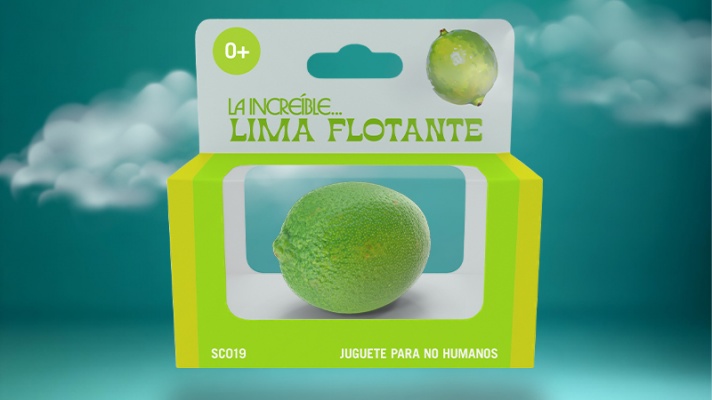Descripción de la Exposición
The Katherine E. Nash Gallery at the University of Minnesota presents Covered in Time and History: The Films of Ana Mendieta, the first gallery exhibition and catalogue specifically devoted to the filmworks made by this highly acclaimed and influential artist. The exhibition is comprised of 21 filmworks and 26 related photographs -- the largest collection of Mendieta's filmworks ever presented as a full-scale gallery exhibition in the United States. The exhibition and the corresponding book, co-published by the Katherine E. Nash Gallery and University of California Press, are the result of three years of collaborative research into the artist's moving image practice conducted by the University of Minnesota and the Estate of Ana Mendieta Collection. In preparation for the exhibition and book, the Estate of Ana Mendieta Collection provided full access to the artist's filmworks, transferred them to 2K high definition digital format for the exhibition, and provided still images of the entire film collection from the new high definition scans for the catalogue. The exhibition travels nationally in 2016.
Ana Mendieta (1948-1985) is widely regarded as among the most original and talented artists of the post-war era. Recent career survey exhibitions presented at major art museums in London, Prague, Salzburg and Turin demonstrate the enduring power of her artistic vision and the continuing influence of her work for subsequent generations. During her brief career, from 1971 to 1985, Mendieta produced a stunning body of work that included drawings, installations, performance, photographs, and sculptures. Less well known is her remarkable and prolific production of films and videos. Covered in Time and History: The Films of Ana Mendieta locates Mendieta's moving image works at the center of her artistic oeuvre and with new research documents her prolific and varied use of the filmic medium, making clear her place as one of the key figures in the multidisciplinary visual arts practice that included filmworks and characterized the historic shifts in 1970s art.
Ana Mendieta was born in Havana, Cuba in 1948 and was sent to the United States in 1961 at the age of 12 as part of Operation Peter Pan, an initiative of the U.S. government and the Catholic charities that brought 14,000 Cuban children to Miami during the years 1960-1962. Mendieta was moved from Miami to Iowa where she lived in several foster homes, then attended the University of Iowa where she received undergraduate and graduate degrees in studio and intermedia art. In 1978 she moved to New York and joined A.I.R., the first gallery of women artists, established in 1972. She received grants from the New York State Council on the Arts, the New York Foundation for the Arts, the National Endowment for the Arts, the John Simon Guggenheim Foundation, and in 1983 the prestigious Rome Prize at the American Academy in Rome. Mendieta was a highly disciplined and unusually prolific artist; in her brief career she produced many important artworks in Cuba, Europe, Mexico and the United States.
Ana Mendieta's particular merging of sculpture, earth art and performance (earth-body, as she termed it) stands as a unique and singular artistic expression. Her work crossed many borders including artistic and time-based disciplines; geographical and political boundaries; and the investigations of history, gender and culture. Mendieta's artwork speaks powerfully to a wide diversity of audiences across the generations because a sustained and unflinching investigation of what it means to be human can be found at the core of her work. The artist's personal biography encompasses the existential dilemmas of the modern era: the experience of personal, cultural and political displacement; the loss of connection and continuity with one's individual and collective past; the pressure to conform and assimilate in a foreign environment, language and value system.
The artist's esthetic lexicon encompasses the persistent dialogue with history and yearning for wholeness that is at the heart of human culture. Her work demonstrates an economy of means and a complicated beauty. Ana Mendieta was influenced by and interested in the artistic movements of her time, including Minimalism, earth art, performance art, and feminist art as well as the historical and spiritual legacies of many cultures, ancient and modern. She drew from each of these influences but ultimately it is the unique, original, and surprising inventiveness of her work that sets it apart and has characterized her continued relevance for subsequent generations.
The exhibition title comes from a statement made by the artist about her work in an interview with Linda Montano published in Sulfur 22 (Spring 1988): "[I]n 1973 I did my first piece in an Aztec tomb that was covered in weeds and grasses - that growth reminded me of time. I bought flowers at the market, lay on the tomb, and was covered with white flowers. The analogy was that I was covered by time and history." This title references the artist's intent for her work and her engagement with the past, the element of time that is intrinsic to the film medium, and the continuing study of her films.

Actualidad, 28 sep de 2015
Mucha América Latina en la nueva temporada de los museos estadounidenses
Por ARTEINFORMADO
Estarán en cartel no menos de nueve exposiciones, entre individuales y colectivas, en este arranque de temporada.

Exposición. 16 abr de 2025 - 11 may de 2025 / Centro Botín / Santander, Cantabria, España

Formación. 08 may de 2025 - 17 may de 2025 / Museo Nacional Centro de Arte Reina Sofía (MNCARS) / Madrid, España